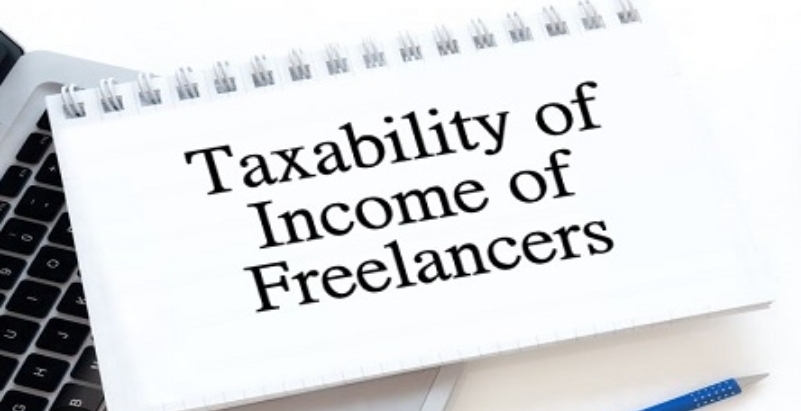
by Sarah Afker
With the boom of millennials, we tend to see many people opting to be entrepreneurs and working freelance rather than commit themselves to a nine to five job. The entrepreneurship concept is encouraged world over as most large businesses had humble beginnings and grew to employ hundreds of people, contribute to the economy and give the entrepreneur the mental satisfaction of working for oneself as well as financial freedom.
What does tax mean to a freelancer? Do they have the right information to help them voluntarily comply or are they simply surprised when they get a notice from the Tax Office? Let’s find out!
Who are taxed ?
Individuals engaged in sole-proprietorship businesses/freelance gigs are taxed on their income at the personal tax rates. Income tax-free threshold for every Sri Lankan citizen/ tax resident is Rs. 1.2 million per year. This means, if your total income is below than the threshold per year you are not required to pay income tax. If you earn more than that you are required to open a tax file and pay tax. Rates are as follows:
Individuals – Progressive Tax Rates
Taxable amount LKR Rate
- First 1,200,000 0%
- Next 500,000/- 6%
- Next 500,000/- 12%
- Next 500,000/- 18%
- Next 500,000/- 24%
- Next 500,000/- 30%
- Balance 36%
If, your instance, you earn Rs. 1.5 million per year by doing tuition classes and some writing gigs, you are liable to tax given annual income exceeds Rs. 1.2 million. Your taxable income will be Rs. 300,000 (Rs. 1.5 million – 1.2 million) and as depicted in the table above you are required to pay 6% of Rs. 300,000 (taxable income) as tax.
How about withholding tax ?
- Interest Income
Interest income is subject to 5% withholding tax; therefore, the banks will deduct 5% and remit the balance to the depositor. So if you get interest income after the tax deduction, you will need to pay tax at the tables above and request a credit for the 5% deducted by the bank. To do this, you will need a tax deduction certification from the bank and a tax file with the Department of Inland Revenue.
- Dividend Income
Dividend income is subject to final withholding tax; therefore, the net income is tax free provided it has been taxed by the company paying the dividend. So if you have shares in a company, then the company would deduct 15% from the dividend and give you the balance. You do not need to worry about any more tax on this dividend earned.
- Service Fee Income
In a bid to broad base the tax net and ease revenue collection, WHT on service fees was re-introduced in 1st January 2023. The service fees are defined comprehensively as service fees with a source in Sri Lanka to a resident individual who is not an employee of the payer –
for teaching, lecturing, examining, invigilating or supervising an examination;
as a commission or brokerage to a resident insurance, sales or canvassing agent;
for services provided by individuals in the capacity of independent service providers such as doctors, engineers, accountants, lawyers, software developers, researcher, academics or any independent service providers as maybe prescribed by regulation.
If you are freelancer engaged in any of the above services, this would mean that 5% of your receipts are withheld by the customer (on sums exceeding Rs. 100,000 per month). The good news is that you will be entitled to the credit on the taxes withheld by the customer upon the production of a certificate of WHT deduction at the time of filing your Personal Tax Return. So, be sure you get the Tax deduction certificate to make a claim against your tax payable.
Are my foreign service earnings exempt from tax ?
Interestingly, those earning foreign income can claim a tax exemption if they render services to any person to be utilized outside Sri Lanka for which they are paid in foreign currency and the money is routed via the banking system.
For example, if you provide some consulting services to Company XYZ based in the UK for use in their foreign operations, and they remit GBP 1000 to your Sri Lankan Bank account, this foreign income is tax exempt in Sri Lanka.
The business income of an individual is to be accounted for on an accrual basis (i.e. where income is recognized irrespective of whether cash is received). This may hinder the liquidity of the freelancer who is not cash rich.
While all this might seem a bit complex to some and rather straight forward to the others, there are entrepreneurs who are below the tax fee threshold while there are others who conducts businesses that would have been eligible to exemptions because they earn foreign sourced income. The need of the hour therefore is a level playing field and reforms that will positively ease liquidity for the individual entrepreneur who may eventually grow into a large corporation and be a success story for the local economy.
Sarah serves as the Partner – Tax Services of BDO Partners and Heads the firm’s Tax Practice. She is a Chartered Accountant, an Associate Member of the Chartered Institute of Management Accountants (UK), Member of the Chartered Institute for Securities and Investment (UK) and a Chartered Global Management Accountant. All views expressed are personal and do not represent the views of her organization.
